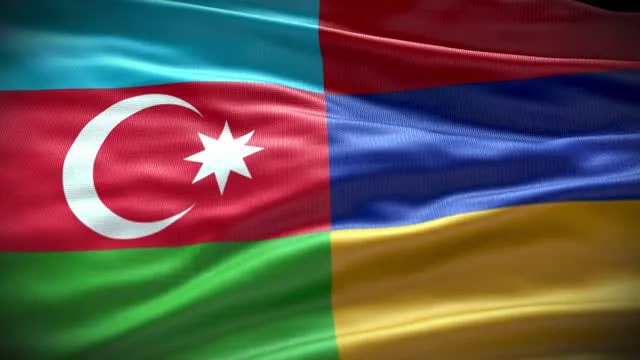In the heart of a geopolitical struggle, Armenia finds itself entangled in a web of accusations, peace talks, and economic challenges, as it navigates the aftermath of conflict and seeks a way forward. The intricacies of the situation are illuminated through the recent statements by Armenian Foreign Minister Ararat Mirzoyan.
On one side of the chessboard, foreign forces are perceived as obstructing the peace process, casting shadows on negotiations that seem to have strayed from the primary objective. Mirzoyan’s recent statements suggest a deliberate effort by Yerevan to sidestep the conditions for peace, using various excuses and baseless claims to reshape the narrative. Yet, there’s a sense of resilience in Armenia, fueled by what is described as “irreplaceable” support from European allies.
Mirzoyan alleges that official Baku, representing Azerbaijan, is violating peace processes, but his claims lack concrete evidence, inviting skepticism about their veracity. My point of view is that Armenia is trying to portray itself as a winner in the eyes of international laws, especially in the absence of substantiated facts.
The discourse on a fair trial pivots on Azerbaijan’s extended hands for peace, contrasting with Armenia’s alleged dramatization of issues to propagate misinformation. The consequences of this approach may lead to a one-sided solution, convincing only a select group of politicians in the Parliamentary Assembly of the Council of Europe.
The narrative delves into Armenia’s strategic moves, asking probing questions about protests in foreign cities and the support for anti-Azerbaijani slogans. As we see that Armenia’s actions, the broader context includes pondering if Azerbaijan reciprocates with anti-Armenian protests in cities across Turkey, Russia, and Europe.
The evolving landscape reveals a mirror reflecting the violation of rights and laws, double standards, and geopolitical complexities. Armenia is urged to seize the opportunity for immediate peace with Azerbaijan, but I suggests that internal pressures may be driving Armenia towards a path of further militarization, symbolized by substantial spending on weapons and defense.
A spotlight is cast on Armenia’s economic crunch, with a pragmatic question echoing: Does a country grappling with economic challenges, exacerbated by a recent defeat in war, need to prioritize weapons over effective economic cooperation? The impending allocation of millions for military purposes in 2024 raises eyebrows, hinting at a potential tense year ahead.
In my conclusion, it underscores the complexities of the peace process, the role of external influences, and the challenges Armenia faces as it grapples with economic hardships, militarization, and the shadows of historical conflicts. Azerbaijan is a peaceful and peace loving nation now the ball is in the court of Armenia.

Mr. Muhammad Ali Pasha is an Analyst and Expert on Central Asia, South East Asia, China, Türkiye and Middle East having experience in the field of article writing in various renowned journals and newspapers across the globe. Furthermore, he is a writer and poet.


